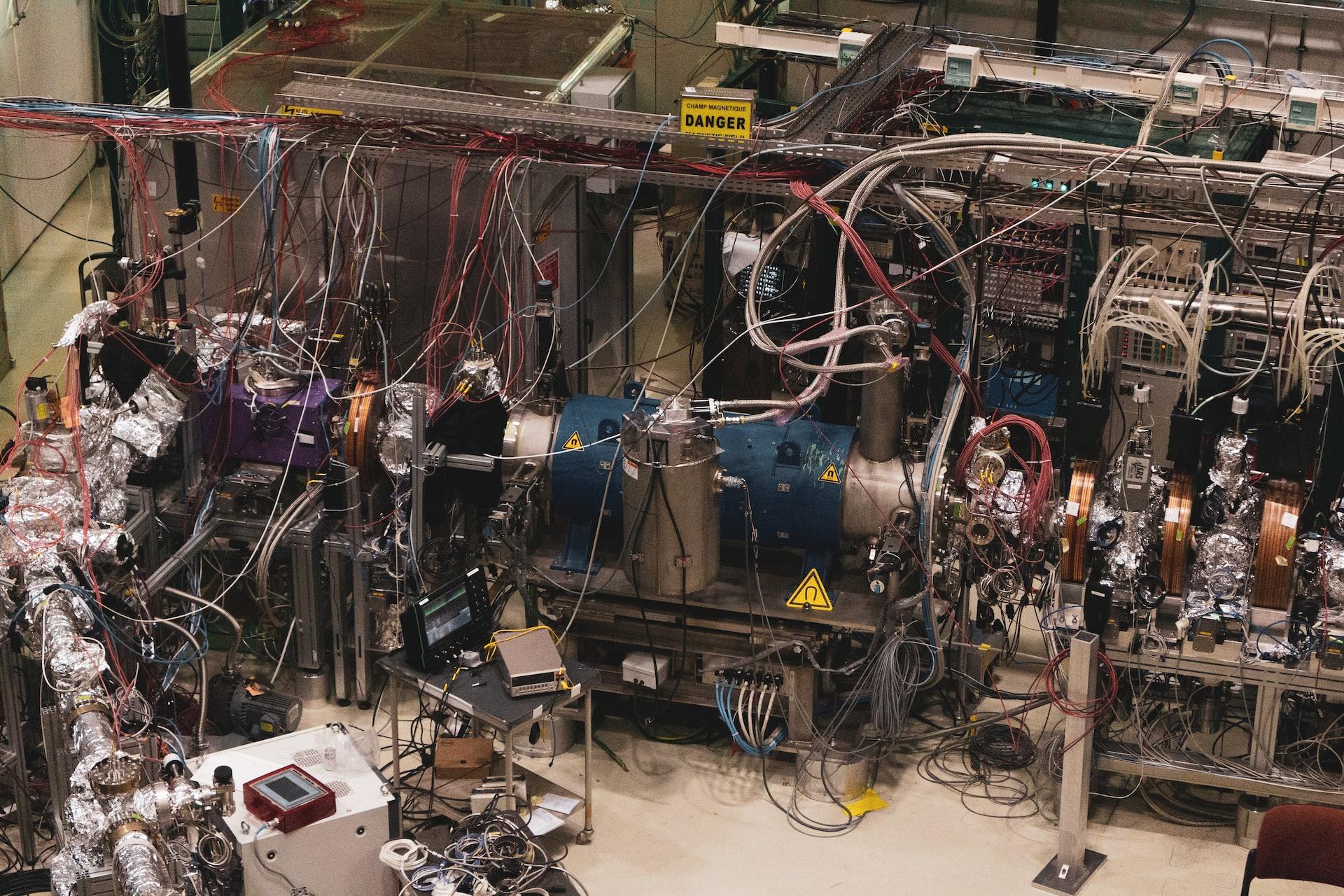In physics, there are lots of options for students and graduates when it comes to what they study and the jobs they do.
Physics is a field that involves a lot of math, but certain physicists will use it more than others according to what they're doing and the type of physicists they are.
Most areas of physics study will have different types of physicists working on it: experimental physicists, theoretical physicists, and mathematical physicists.
Experimental physicists look to develop experiments and obtain data experimentally. While they'll still likely use math and will be required to have an excellent understanding of it, they won't necessarily be required to use the same mathematical rigor as theoretical and mathematical physicists.
Theoretical physicists look to derive and develop theories from thought experiments and the findings of experiments. They can use mathematics to do this, and they often will, but mathematical physicists look to explain physics phenomena in a purely mathematical framework.
To greatly oversimplify, you could say that mathematical physicists are mathematicians answering physics questions and problems. If you're already studying mathematical physics or are interested in it, you might be wondering what kind of career options are out there.
Let's see where mathematical physicists work, how much they could potentially earn, and whether or not this is a career choice worth pursuing.
Book a physic lesson according to your level on Superprof.

Where Do Mathematical Physicists Work?
For any student completing undergraduate or postgraduate qualifications in mathematical physics, there are two main options: to remain in mathematical physics through academia or research or to take your mathematical physics skills and knowledge into areas that will be able to use them.
Naturally, it can help to study at one of the best colleges for mathematical physics, but generally speaking, these are the places where mathematical physics skills can be used.
Mathematical Physics Academia and Research
If you're considering keeping your feet firmly planted in mathematical physics or theoretical physics, then you'll most likely stay at college after graduation. Many students interested in mathematical physics are required to complete graduate studies or even a Ph.D.

Once finished with their education, they can remain in academia either through teaching, research, or a combination of the two.
The average physics professor in the US makes close to $114k a year and the average math professor makes $108k per year on average.
It should be noted that while the exact number of graduate students that can remain in academia is quite low and some estimates suggest that there are half as many jobs in academia available as graduating Ph.D. students.
That doesn't mean that mathematical physicists with doctorates aren't finding work, it just means that you may want to be realistic when it comes to remaining in academia once you've obtained your graduate degree or Ph.D.
Fortunately, there are plenty of interesting areas where mathematical physicists can work so let's have a quick look at what these are.
Engineering
Engineering and manufacturing are two areas that have lots of positions available for those with a firm understanding of math and physics
and these roles could be in a broad range of applications.
Naturally, specific engineering programs and courses do exist and there are specific roles that are better suited to these graduates, but there are also lots of roles, especially in larger engineering firms, that don't require engineering degrees but rather the knowledge of math and physics that only mathematical physicists have.
With so many different types of engineering out there, it can be tough to say exactly how much the average engineer earns, but the range tends to be between $100k and $130k a year. Again, this will depend on the field and seniority of the engineer, but it still remains a more than viable option for mathematical physicists to consider.
Government and Defense
Mathematical physicists are also in demand for government and defense roles. Naturally, some of these roles overlap with the aforementioned engineering opportunities, but there are also plenty of roles in technology, manufacturing, and research with governmental or military applications that require mathematical physicists.
In the military, for example, physicists are involved in areas such as lasers, optics, semiconductors, and nuclear weapon technology as well as operations and intelligence.
This is another role that's quite tricky to pinpoint an average salary for since there are so many different roles, positions, and levels of seniority but the best estimate we can find is that the average physicist working for the federal government is earning close to $150k each year.
Material Science
Material science is the area of engineering that looks at the materials used across many applications to either improve them, better understand them, or develop new synthetic materials in everything from military applications and civil engineering to everyday consumer products.

Naturally, some academic programs lead directly into material science jobs, but some roles require mathematical physicists, especially when it comes to the underlying mathematics that explains material behavior and failure analysis, which looks at which points materials stop functioning as intended.
The average salary for material sciences is $105k a year.
Medical Science
Though you'd think that medical science is mostly for biologists or medical students, there are plenty of physics applications in the field, and where there's physics, there's a need for physicists.
While the physicists who study medicine are known as medical physicists, a profound knowledge of math and physics can always be applied to medicine, albeit with some additional training or study.
Medical physics often deals with areas such as radiology and medical imaging, nuclear medicine, radiation protection, and physiological monitoring.
As with other roles in medicine, medical physicists tend to earn a premium with the average base salary being close to $156k annually. Again, this is just the average and as there are many different roles and applications for physics in medicine, it depends on what you're doing, your level, and your experience.
Science Communication
Science communication is how others find out about scientific research and education and it typically takes somebody with a background in the sciences to do it. However, it takes more than an out-and-out scientist to do it and anyone wanting to work as a science communicator will need excellent interpersonal skills, writing skills, and presentation skills.
This role is typically a good one for extroverted mathematical physics graduates with an infectious passion for their field and the work being done in it.
The average science communicator salary is $155k, but, as always, salaries will vary according to location, seniority, the employer, and your skills and education.
Learn everything you need to know with Chicago physics tutors on Superprof!
Software Engineering
Software engineering is another one of the roles that mathematical physicists can naturally transition to, especially since they tend to pick up a lot of the required skills during their undergraduate and graduate degrees.

The average salary is around $120k, but the potential to earn more than this after just half a decade in the industry is very high and those with over a decade of experience can earn an average of $150k per year.
Naturally, salaries are affected by location, employer, and experience, but larger cities and tech hubs tend to offer the most competitive salaries and big tech firms are the ones paying a lot of the premium salaries.
Space
By space, we don't mean that you'll work in space. At least not right now. In the past, these roles would have fallen under government and defense but with private companies like Blue Origin, Virgin Galactic, and SpaceX, there are roles in the private sector for physicists and mathematical physicists in this fascinating field, too.
Physicists are highly sought after for everything from aerodynamics to software and a highly-qualified mathematical physicist could look for roles at either government institutions or private spaceflight companies.
With so many different physics roles and so many physicists working at these companies and institutions, it's pretty much impossible to say what the average salary is, but if space is what got you excited about studying physics in the first place, you should have a look for opportunities.
Teaching
If you stay in academia and work directly in the field of mathematical physics, you'll probably end up having to teach. However, this isn't the only place you can choose to teach.

For those passionate about physics and looking to teach others, you could always move into teaching. However, you should know that the salaries, at least in public schools, average $65k, which is significantly lower than a lot of the other opportunities we've already mentioned.
On the other hand, this is also a career that won't require a Ph.D. and you can get into teaching more quickly and easily than a lot of these other careers. Similarly, teaching is a career choice that comes with its own rewards that you mightn't necessarily get to enjoy in the other careers we've mentioned.
Is Mathematical Physics a Good Career Choice?
In short, mathematical physics can include a lot of studying, but there are so many career choices that even if you don't remain in academia or research, you can comfortably find another rewarding career with an appealing salary.
It can help to look for work or live in cities where mathematical physics is common, too.
As with a lot of careers in science, there are going to be many opportunities in the future that don't necessarily exist now and they'll need mathematical physicists working on physics problems that we haven't even started thinking about yet!
Within the expansive realm of the internet, ap physics tutor online stand as a formidable guide, leveraging the digital landscape to disseminate the intricate principles of the universe, nurturing the curiosity of students and illuminating their journey of discovery with virtual lectures, interactive demonstrations, and personalized guidance, thus bridging the gap between distance and comprehension, and fostering a deeper appreciation for the wonders of physics.

Summarize with AI:















